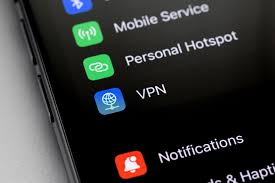VPNs prevent spying from your ISP by encrypting your traffic, and they also protect your privacy by routing your browsing lookups through their own DNS servers. To take your VPN experience to the next level, try enabling custom DNS settings.
Setting custom DNS can improve VPN speed
Specifying a custom DNS on your VPN can make your encrypted connection faster. This is because you can set your VPN app to request lookups from better-performing DNS servers such as those offered by Cloudflare DNS (1.1.1.1) or Google DNS (8.8.8.8).
Doing so can make your VPN connection more responsive because these public DNS compete to be the fastest DNS. For example, they perform optimizations to make popular websites load faster. They usually manage the load better during peak usage and rarely go down compared to the DNS servers run by your ISP or VPN provider.
Unfortunately, some public DNS servers keep logs. This isn’t great for privacy, but you can read more about that in a bit.
Some DNS servers block ads and malware
Despite my personal views on the matter, pop-up ads aren’t as bad as malware. But let’s lump them together to highlight a special feature of some DNS resolvers: filtering unwanted content.
It’s true that many VPN services can already help you block ads and avoid common sources of malware, but few DNS providers are actually dedicated to this purpose. For example, specialized resolvers like AdGuardDNS and NextDNS are excellent at keeping blacklists up-to-date. These resolvers can filter out other things like tracking cookies, phishing sites, or adult content.
When you block unwanted content, you don’t have to spend bandwidth on loading images for ads or their complex tracking scripts. A great side effect is that it also makes your VPN connection faster.
A VPN Custom DNS Can Prevent DNS Leaks
By connecting to a VPN, your real IP address should be hidden, right? It should be – unless you have a DNS leak.
DNS leaks occur when your internet requests are inadvertently routed through your ISP’s DNS servers.
This problem defeats the purpose of using a VPN to bypass censorship or access region-locked content. If you test your VPN’s encryption and find that its track record isn’t very good, what can you do? Setting up a custom DNS on your VPN may be the answer.
Some DNS servers have built their reputation on providing better user privacy. For example, Quad9 (9.9.9.9) prides itself on avoiding DNS leaks. Under the jurisdiction of Swiss law, the company is not allowed to log your IP address, nor can it collect and sell your user data.
Custom DNS Settings Can Undermine Your Privacy
Although using custom DNS settings with your VPN can boost your performance, it also comes with risks.
Many public DNS servers keep logs, which isn’t great for your privacy. That being said, some DNS servers delete logs or don’t store logs at all. I recommend you research and choose a DNS provider whose privacy policy is comfortable for you, especially an encrypted DNS provider.
Also, VPN providers optimize DNS servers for security and privacy, but the mission of a public DNS resolver may not be the same. If your VPN drops out unexpectedly or the app doesn’t route your DNS queries properly, there’s a chance it could expose your internet activity. So, while your VPN service may be faster, you’re leaving your privacy to two services instead of one.
Whether you want to speed up your VPN, block unwanted content, or protect your privacy, a public DNS server is there for you.
